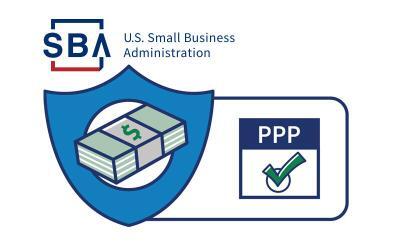Is there a recession on the way? The best and most honest answer is maybe. Some economic signs point to a coming economic downturn, while others, like the nation operating at nearly full employment, suggest otherwise.
It may be a cliché, but only time will tell. In the meantime, savvy small business owners should change some of their habits and activities now, so these new behaviors are startling if a recession hits.
We explained how to best prepare for a recession, so first, make sure your small business has enacted what you prepped for. Here are some tips for surviving a recession.
Is Your Cash Still Flowing?
As we noted in the recession preparation blog, keeping an eye on your cash flow is critical. Check your accounts receivable. Are they current? If not, reach out to the people and businesses that owe you and see how you can expedite payment. Consider expanding the payment options you currently offer. Giving customers more ways to pay, such as electronic payment solutions IEFT or ACH) or credit cards can often help you collect money owed.
It is just as important to know where your funds are going. Are you subscribing to newsletters and other publications that are no longer helpful, or you don’t have the time to read? Do you belong to associations that you’ve outgrown? It’s critical that you spend your money on things that really matter to you and your team.
Check your insurance policies to ensure they’re current, cover what you need, and you’re not paying for unnecessary coverage. Consider shopping around; many companies are currently offering introductory packages and pricing to entice new clients.
Vet Potential Clients
If your clients are primarily other businesses (B2B), before you sign a new contract, check the credit and financial history of the company. The three major business credit reporting agencies are Experian, Dun & Bradstreet, and Equifax. Also, check with the Better Business Bureau, rating and review sites like Yelp, and do a Google search.
Maintain Your Relationships
Running a business during a recession can be hard on you both professionally and personally. Make sure you take time away from work to keep your mind fresh. Spending time with friends and family can reinvigorate you. You might also consider meditation or yoga to relieve stress and clear your mind.
Regarding work, now is an excellent time to connect with others in your industry, your city, or in online business community groups. They are likely experiencing the same concerns you are. Sharing challenges and solutions will benefit you and your company.
Ask for Help
Numerous studies have shown that accountants are small business owners’ most trusted advisors. Don’t hesitate to ask them for help. Think about others in your professional network. Your attorney, financial advisor, or banker may be able to help. If your concern is more specific, such as flattening sales, or your marketing isn’t working as well as it used to, consider talking to any professionals you know with expertise in those areas.
You can also get help from your local Small Business Development Center and free mentoring advice from SCORE.
Don’t be afraid or embarrassed to ask for help.
Outsource
It may seem counter-intuitive to tell you not to count your pennies during economic uncertainty. But don’t. During a recession, you may think that cutting back on the services you currently outsource and doing them yourselves is a smart idea. It’s really not.
To survive a recession, you don’t have time to worry about things like your bookkeeping, running payroll, sending invoices, or figuring out what states you need to pay sales tax to. Outsource these and other services so you can concentrate on the elements of your business operation that really make a difference, the things that move sales, such as marketing, managing your workforce, staying compliant, instituting customer retention plans, developing new ideas, expanding to another state, etc.
Invest in Your Company
Obviously, you need to keep an eye on your expenses to maintain positive cash flow. But now isn’t the time to stop investing in your company and your team.
Marketing during a recession is a smart move. Other companies will likely cut back, letting your marketing dollars go further and have a more significant impact. You should concentrate your energies on your existing customer base since it’s easier and less expensive to keep a current customer than attract a new one.
Be visible. Up your social media presence. This low-cost investment enables you to cement your relationships with your current client base and introduce you to new customers. Be empathetic to your customers’ concerns, offer advice, and share news and insights.
Adjust to New Consumer Behaviors
If the country indeed enters a recession, consumers may start to reduce their spending. Your marketing strategies will obviously help keep your company top of mind for them. But you may need to tweak your messages and offerings so customers think of your products or services as essential—something they need, not just want. Pay attention to what your customers are saying and feeling (that’s where social media helps) to better understand what they need right now.
You don’t necessarily have to cut your prices, but you will likely have to up your promotions. For B2C businesses, surveys have shown that most customers want a discount before buying. B2B businesses have been embracing B2C business practices. Instead of lowering your prices, consider creating bundles or value packages to give your customers a better deal.
These tips will help you grow your business whether or not there’s a recession. They’ll prepare you for whatever comes next. As Roseanne Roseannadanna, the character created by the legendary Saturday Night Live star Gilda Radner used to say, “It’s always something.”





